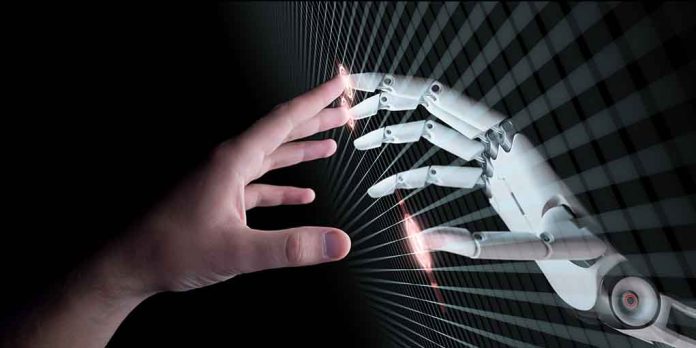
California Governor Gavin Newsom signs groundbreaking legislation to combat AI-generated deepfakes in politics, sparking a heated debate with tech mogul Elon Musk over free speech and election integrity.
At a Glance
- California enacts strictest laws against political deepfakes in the nation
- New legislation requires disclosure of AI use in political ads and removal of deceptive content
- Elon Musk criticizes the law, arguing it violates free speech and makes parody illegal
- Newsom defends the measures as crucial for safeguarding election integrity
California Takes Bold Step Against AI Misinformation
In a move that has sent ripples through both the political and tech worlds, California Governor Gavin Newsom has signed into law a series of bills aimed at combating the spread of AI-generated deepfakes in politics. These laws, considered the most comprehensive in the nation, mandate disclosures in political ads using AI, require online platforms to remove deceptive content within 72 hours, and penalize creators of false information about candidates.
The legislation comes in response to growing concerns about the potential for AI-generated content to mislead voters and undermine the integrity of elections. Deepfakes, which are highly realistic and difficult-to-detect digital manipulations of audio or video, have become increasingly sophisticated and accessible, raising alarm among lawmakers and election officials.
Newsom vs. Musk: A Clash Over Free Speech
The new laws have sparked a heated debate, with tech entrepreneur Elon Musk leading the charge against what he perceives as an infringement on free speech. Musk, who recently shared a doctored video of Vice President Kamala Harris, has argued that the legislation effectively makes parody illegal and violates the Constitution.
“You’re not gonna believe this, but Gavin Newsom, just announced that he signed a LAW to make parody illegal, based on this video.”
In response, Newsom has defended the legislation, emphasizing its importance in safeguarding election integrity and public trust. The governor stated, “Safeguarding the integrity of elections is essential to democracy, and it’s critical that we ensure AI is not deployed to undermine the public’s trust through disinformation – especially in today’s fraught political climate.”
NEW: California bans deceptive campaign “deepfakes,” country’s broadest AI elections law@GavinNewsom signs the bill after slamming @elonmusk for sharing a doctored @KamalaHarris video, saying today Musk’s move was “wrong on every level” and “malicious”https://t.co/UjZoCnbaat
— Jeremy B. White (@JeremyBWhite) September 17, 2024
The Impact on Social Media and Tech Companies
The new laws place significant responsibility on social media platforms and tech companies. Assembly Bill 2655 mandates that large online platforms remove or label deceptive election content within 72 hours. This requirement is likely to pose challenges for companies like X (formerly Twitter) and Meta, which will need to develop robust systems to identify and moderate AI-generated content quickly.
“California will now require social media companies to moderate the spread of election-related impersonations powered by artificial intelligence, known as “deepfakes,” after Gov. Gavin Newsom, a Democrat, signed three new laws on the subject Tuesday.
In one video viewed millions of times, Mr. Musk posted fake audio of Vice President Kamala Harris, the Democratic nominee, calling herself the “ultimate diversity hire.””
The legislation has been met with mixed reactions from the tech industry. While some view it as a necessary step to combat misinformation, others worry about the potential for overregulation and its impact on innovation. Legal challenges from social media companies or free speech groups are expected, which could test the constitutionality of these new laws.
Looking Ahead: Implications for the 2024 Election and Beyond
As the 2024 presidential election approaches, the effectiveness of California’s new laws will be closely watched. Only one of the laws will take effect in time for the upcoming election, but the state’s approach could serve as a model for regulators nationwide. The legislation’s impact on political discourse, campaign strategies, and voter perceptions remains to be seen.
“With fewer than 50 days until the general election, there is an urgent need to protect against misleading, digitally-altered content that can interfere with the election,” Assemblymember Gail Pellerin, author of the law banning election deepfakes, said in a statement. “California is taking a stand against the manipulative use of deepfake technology to deceive voters.”
As AI technology continues to advance, the battle against misinformation and the preservation of electoral integrity will likely remain at the forefront of political and technological debates. California’s bold move may be just the beginning of a broader national conversation on how to balance the benefits of AI with the need to protect democratic processes.














